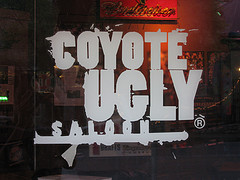Employers who discipline employees for their social media activity could unwittingly violate protections under the National Labor Relations Act (NLRA) for employees who engage in “protected concerted activity.” An employee engages in protected concerted activity when acting together with other employees, or acting alone with the authority of other employees, for the mutual aid or protection of co-workers regarding terms and conditions of employment. Since social networks by nature connect people, online gripes about work—which could be read by co-workers of the author within the same social network—could constitute protected concerted activity. Three recent National Labor Relations Board (NLRB) decisions highlight this risk.
In Hispanics United of Buffalo, Inc., 359 NRLB No. 37 (Dec. 14, 2012), an employee at a domestic violence relief organization posted on Facebook about a co-worker (Cruz-Moore) who threatened to complain about the work habits of other employees to the executive director of the organization. The employee wrote: “Lydia Cruz, a coworker feels that we don’t help our clients enough . . . . I about had it! My fellow coworkers how do u feel?” Four off-duty employees responded to this post with disagreement over Cruz-Moore’s alleged criticisms. Cruz-Moore saw these posts, responded to them, and brought them to the attention of the executive director. The employee who authored the original post and the employees who responded were fired. Two NLRB members of a three-person panel found the termination to be a violation of Section 8(a)(1) of the National Labor Relations Act (NLRA). The NLRB found the posts to be “concerted” because they had the “clear ‘mutual aid’ objective for preparing coworkers for a group defense to [Cruz-Moore’s] complaints.” The NLRB also considered the posts “protected” because they related to job performance matters.
In Pier Sixty, LLC, 2013 WL 1702462 (NLRB Div. of Judges Apr. 18, 2013), the service staff of a catering company were in the process of taking a vote on union representation when a staff member (Perez) got upset by what he perceived as harassment by his manager. During a break, Perez went to the bathroom and posted on Facebook: “Bob is such a NASTY M***** F****R don’t know how to talk to people!!!!! F**k his mother and his entire f*****g family!!!! What a LOSER!!!! Vote YES for the UNION.” Various co-workers responded to the post. The company fired Perez after learning about the post. An administrative law judge of the NLRB held that the employer violated Section 8(a)(1) of the NLRA. The judge found the post to constitute “protected activity” because it was part of an ongoing sequence of events involving employee attempts to protest and remedy what they saw as rude and demeaning treatment by their managers. The post was also “concerted” because it was activity undertaken on behalf of a union.
In Design Technology Group, LLC d/b/a Bettie Page Clothing, 359 NLRB No. 96 (Apr. 19, 2013), employees of a clothing store repeatedly but unsuccessfully attempted to persuade their employer to close the store earlier so that they wouldn’t have to walk through an unsafe neighborhood at night. The employees posted Facebook messages lamenting the denial of their request and criticizing their manager. In one message, an employee said she would bring in a book on workers’ rights to shed light on their employer’s labor law violations. Another employee saw the messages and sent them to the HR director, who in turn forwarded them to the store owner. The owner fired the employees who posted the messages, allegedly for insubordination. A NLRB administrative law judge found the terminations unlawful because the messages were a continuation of an effort to address concerns about work safety (i.e., leaving work late at night in an unsafe neighborhood) and thus constituted protected concerted activity.
LegalTXTS Lesson: What should employers learn from these decisions? To avoid violating Section 8(a)(1) of the NLRA, employers might consider the following before disciplining employees based on their social media activity:
- Check whether the employee’s post attracted or solicited a response from co-workers. The interactive nature of social networking means that communications via social media are often “concerted.”
- Calls for co-workers to take action likely constitute “protected” activity.
- Complaints about work or co-workers—even if vulgar—can be considered “protected” activity.
- Messages posted outside of the workplace or work hours can still be considered protected concerted activity.
- Be especially sensitive to messages that reference collective bargaining activity or labor requirements. Those are red flags indicating the need to exercise caution.
- Often, social media is not the initial venue for airing work-related complaints. Investigate whether the complaints voiced online were previously brought to the attention of the employer. If they were, the online messages are more likely to be found to be part of a series of protected activity.




